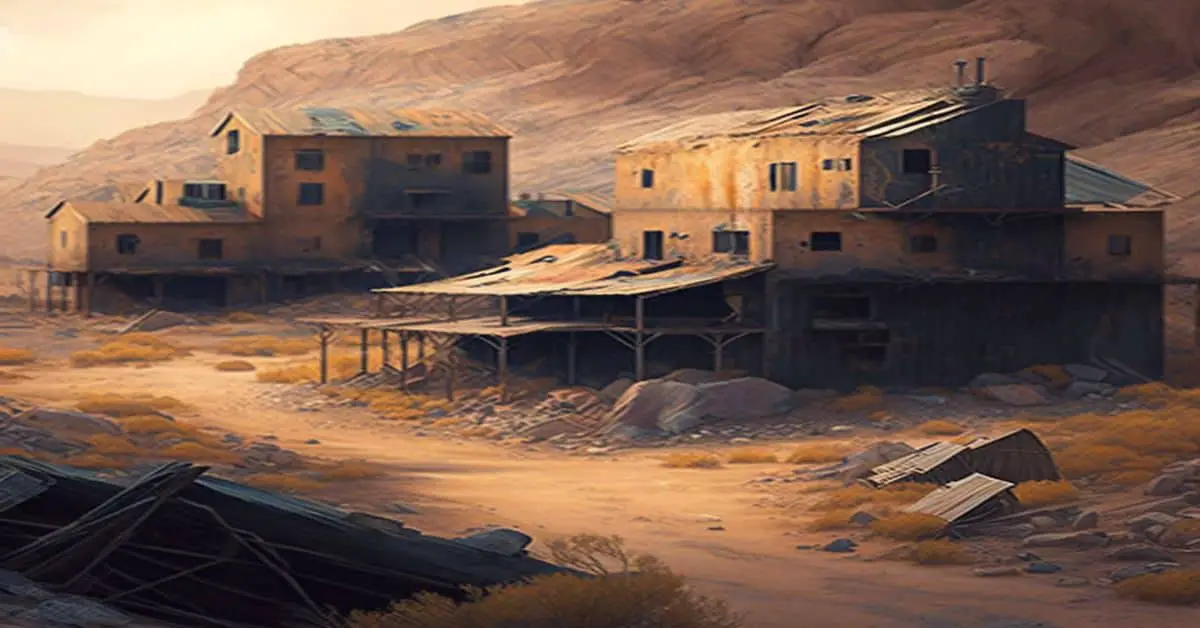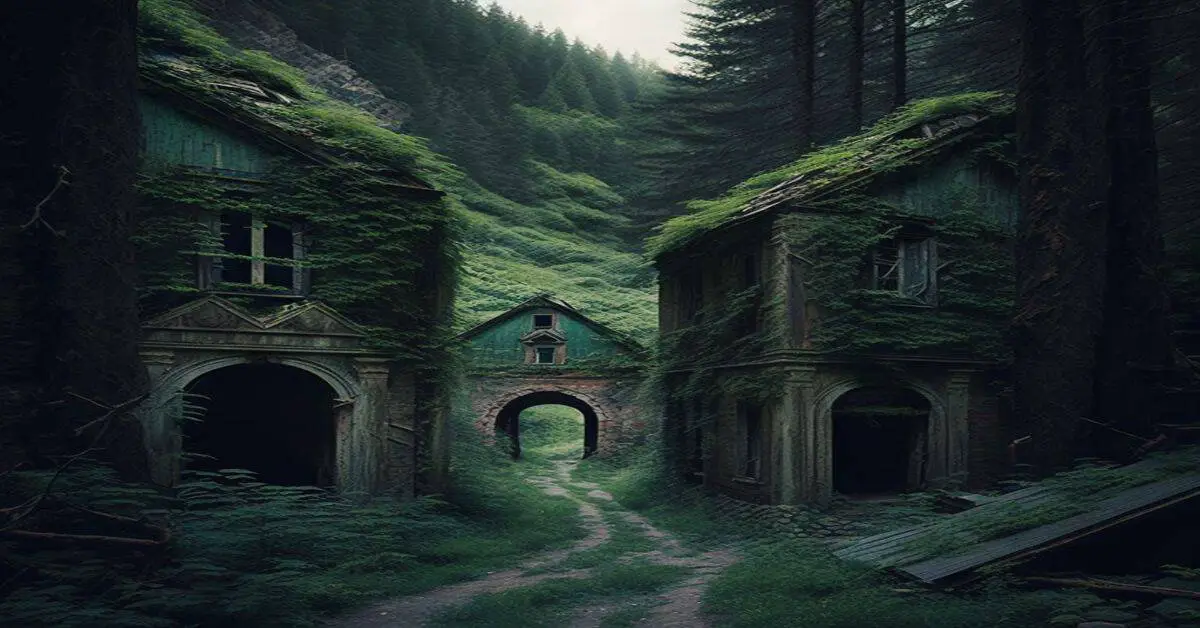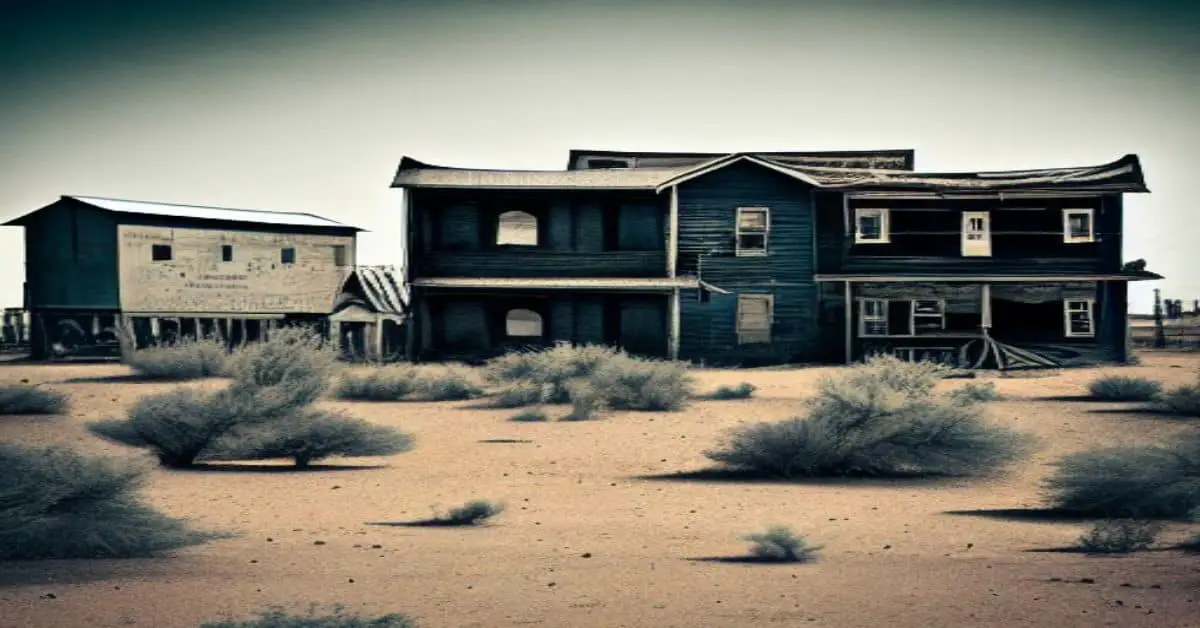In the vast expanse of the American West, some many towns and cities have been forgotten and abandoned over time. Once thriving and bustling with life, these places now stand as ghostly reminders of the past.
Roggen, Colorado is one such place. Located in Weld County, Roggen is a small town that has been left to decay, with only a handful of residents still living among the abandoned houses and storefronts.
Walking through the town feels like stepping into a different era, one where time has stood still and the world has moved on. The dirt road that runs alongside the railroad track, the dilapidated buildings, and the sense of isolation all contribute to the eerie feeling of being in a place that has been left behind.
Despite its abandonment, Roggen still holds a certain allure, with an active mill of some kind still operating across the tracks. This article will delve into the history and current state of Roggen, CO, a forgotten town that remains a curious and intriguing destination.
Key Takeaways
- Roggen, Colorado is a small town that has been left to decay, with only a handful of residents still living among the abandoned houses and storefronts.
- Despite its dilapidated appearance, Roggen could potentially become a unique tourist destination, showcasing the history and culture of the American West.
- Roggen’s historical significance dates back to the early 1900s when it was originally a railroad town, serving as a hub for transporting goods and people, and was a major wheat producer in the early 20th century.
- The majority of the town remains abandoned, with a deserted main street, about a dozen abandoned homes and shacks, and a motel and gas station in disrepair.
Appearance and Location
Roggen, a forgotten town in Weld County, Colorado, is characterized by a dirt road main street alongside a railroad track, numerous abandoned houses in various stages of disrepair, and a few visibly inhabited homes, resembling a forgotten, decaying memory of a once-thriving community.
Despite the town’s dilapidated appearance, some signs of life still exist, such as an active mill across the tracks and a few residents. However, most of the town remains abandoned, with a deserted main street, about a dozen abandoned homes and shacks, and a motel and gas station in disrepair.
While Roggen may not be listed as a ghost town on official maps, it is undoubtedly a relic of a bygone era. The town’s location in Weld County, surrounded by vast plains and farms, adds to its eerie appeal.
However, with nearby attractions such as the Pawnee National Grassland and the Denver Botanic Gardens at Chatfield, there is potential for restoration and revitalization of the town. Despite its current state of disrepair, Roggen could potentially become a unique tourist destination, showcasing the history and culture of the American West.
Remains and Attractions
The remains of the town of Roggen are a testament to its abandonment and forgotten status. The deserted main street has about a dozen abandoned homes and shacks, a motel, and a gas station. While the town’s appearance appears to be in a state of disrepair, there are still a few empty storefronts that can be explored.
Across the tracks, an active mill can be seen, and a handful of residents still inhabit some of the old homes in the town. Exploring Roggen’s abandoned motel is a reminder of the town’s past glory and the lives that were once lived within its walls. The Prairie Lodge Motel, now derelict, was once a bustling establishment that catered to travelers.
The deserted main street offers an eerie experience as visitors can discover hidden treasures, such as old storefronts and homes that were once a part of the town’s history. While Roggen may be a forgotten town, it still holds a certain fascination for those drawn to abandoned places’ history and mystery.
History and Background
Located in Weld County, Colorado, this small town has a rich history that dates back to the early 1900s. It was originally a railroad town, serving as a hub for transporting goods and people.
Roggen’s historical significance also extends to its role as an agricultural center, with the town being a major wheat producer in the early 20th century. Notable events in Roggen’s history include the establishment of the town’s first post office in 1910, and the construction of a grain elevator in 1913.
The town also played a role in World War II, with the Roggen Farmers Elevator Company providing wheat to the government for the war effort. Despite its past successes, the town suffered a decline in population and economic activity in the latter half of the 20th century, leading to its current state as an abandoned and forgotten ghost town.
Frequently Asked Questions
What caused the decline of Roggen and why did people leave?
The decline of Roggen, CO can be attributed to several factors including the collapse of the local agriculture industry, the relocation of residents seeking better opportunities, and the lack of investment in the town’s infrastructure. The abandonment of Roggen had a significant impact on the local economy, leading to job losses and a decrease in property values.
Are there any legends or ghost stories associated with Roggen?
Local superstitions and ghost stories abound in Roggen, with rumors of haunted buildings and unexplained occurrences. Some residents believe in the presence of spirits, adding to the eerie atmosphere of this forgotten Colorado ghost town.
Is there any local wildlife or natural attractions in the area surrounding Roggen?
The area surrounding Roggen, CO boasts a variety of local flora and fauna, including prairie grasses, wildflowers, and wildlife such as pronghorn antelope, coyotes, and prairie dogs. Natural landmarks include nearby Pawnee Buttes and the Pawnee National Grassland.
Are there any notable events or festivals that take place in or around Roggen?
Outdoor enthusiasts can enjoy hiking, fishing, and camping in the nearby Pawnee National Grassland. Local cuisine can be found at the nearby towns of Keenesburg and Hudson, including famous green chili at the Hudson Cafe.
Are there any plans for the future of Roggen, such as restoration or redevelopment?
Revitalization efforts in Roggen have been discussed, with community involvement being a key factor. Plans for restoration or redevelopment have not been made public, but the presence of inhabited homes suggests some level of community investment.


